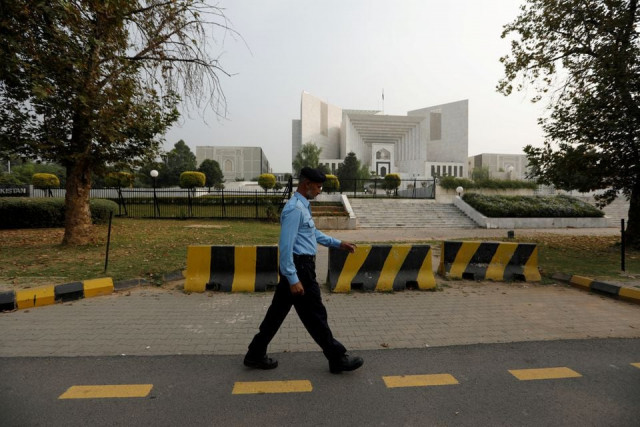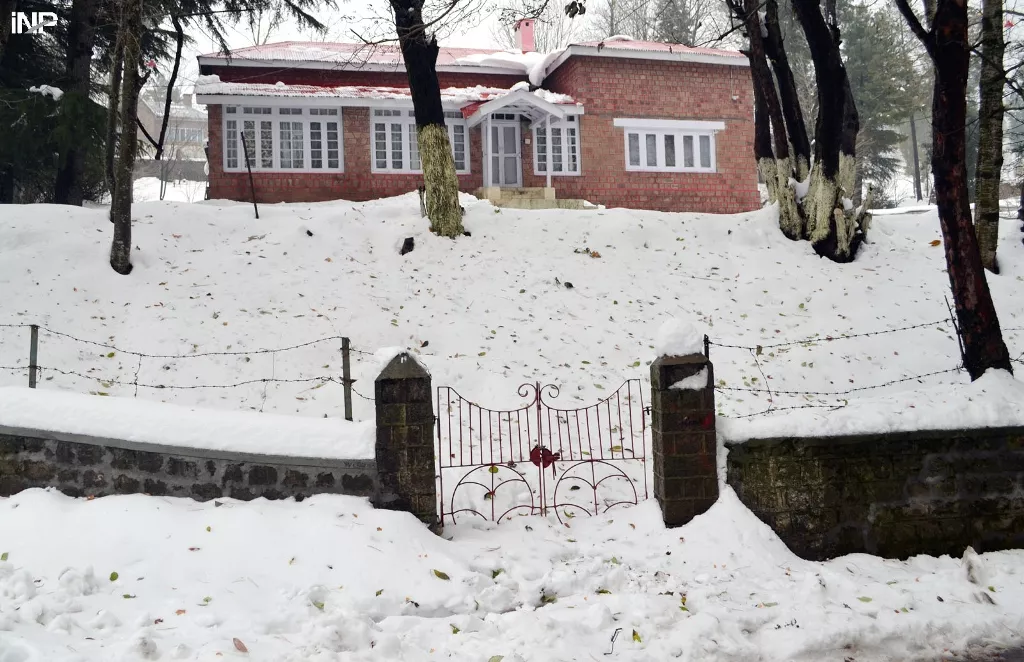PTI presses for devolution of power
PTI becomes party to MQM's SC case against delimitation of local bodies

The Supreme Court on Thursday approved the applications of the first phase's successful candidates to become parties in the petition of the MQM-P against the delimitation of local bodies in Sindh for the second phase of LG elections in the province.
A three-judge SC bench comprising Chief Justice Umar Ata Bandial, Justice Mansoor Ali Shah and Justice Munib Akhtar heard the case filed by MQM-P leader Khalid Maqbool Siddiqui and others.
MQM’s counsel Barrister Farogh Naseem contended that the population ratio was not kept uniform in the constituencies.
In response, the CJP asked whether or not the Election Commission of Pakistan (ECP) was satisfied with the delimitation of constituencies.
Opposing the petition, the ECP’s DG Law told the judge that the delimitation of constituencies was carried out in accordance with the law.
He added that the delimitation of constituencies was the responsibility of the provincial government and the ECP's duty was to hold elections.
Naseem argued that a union council (UC) compromised 90,000 people where MQM-P was successful. However, he added that the PPP was successful in UCs with a population of 40,000.
The counsel for the MQM-P argued that the ECP was taking a stand against the decision of the Supreme Court. The top court had given the powers of delimitation of constituencies to the ECP, he added.
Naseem contended that the Sindh Local Government Act 2013 was amended against the orders of the top court.
The amendments made in 2015 were in contempt of the Supreme Court’s 2014 judgment, he added.
The MQM-P lawyer claimed that the difference of population in constituencies was a clear violation of Article 25 of the Constitution and Section 25 of the Election Action Act, 2017.
He alleged that the difference in constituencies was deliberate so that the PPP could elect its own mayor.
Advocate Khalid Javed, who was representing the PPP, contended that if this argument was accepted, there would be no more delimitation of constituencies of the National and provincial assemblies.
He added that some constituencies of the National Assembly comprised 300,000 voters and others 900,000 population.
The CJP noted that the court would decide the case after hearing all the parties in detail on the next date of hearing -- August 15.
He added that the local elections were scheduled on August 28 so there would be no adjournment for the next hearing.
The top judge observed that the MQM-P’s petition was limited to urban areas only.
Separately, the PTI filed a civil petition for leave to appeal (CPLA) under Article 185(3) – nominating the provincial government and the ECP as respondents -- sought the enforcement of earlier SC directions regarding devolution of powers to local governments before the LB elections in Sindh.
It claimed the PPP government had failed to implement the SC directions despite the passage of many months.
It added that unless the devolution was expeditiously implemented. the upcoming LG elections would be a futile and pointless exercise.


















COMMENTS
Comments are moderated and generally will be posted if they are on-topic and not abusive.
For more information, please see our Comments FAQ